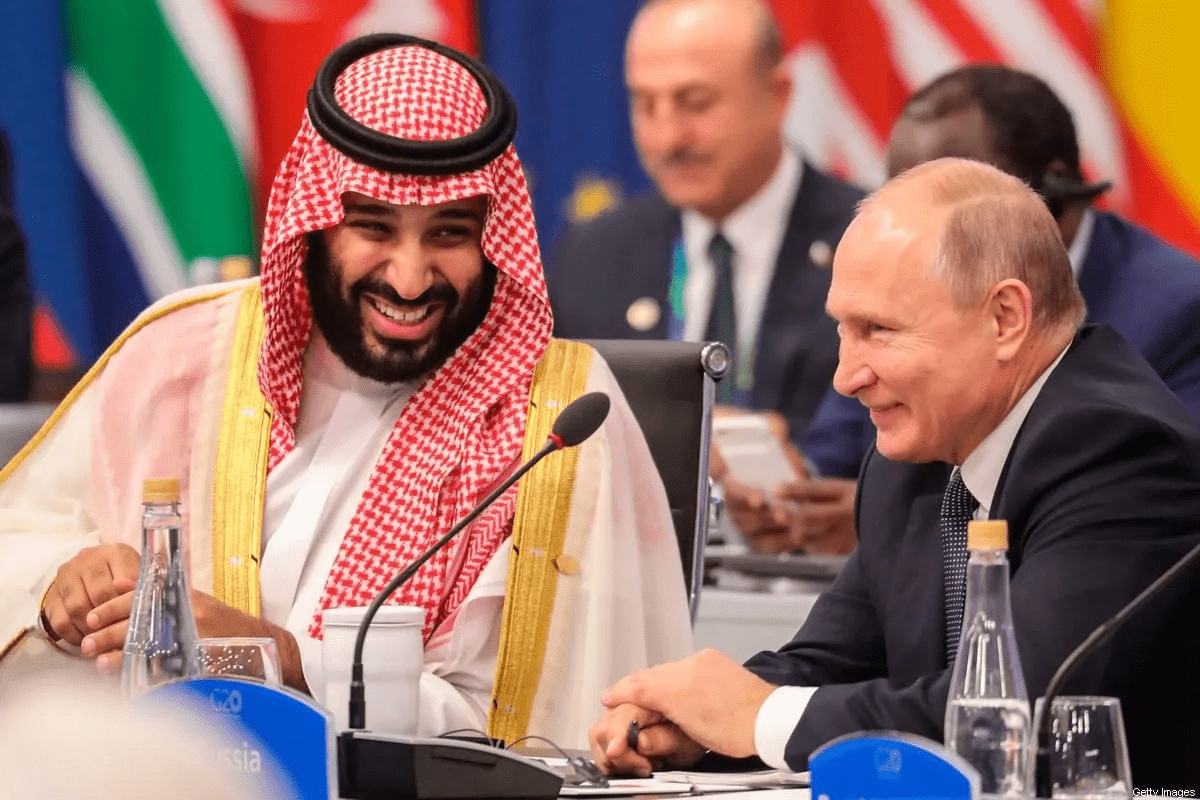The release of the 10 foreign fighters, including two from the United States and five from Britain, came alongside a broader prisoner-of-war swap, brokered by Turkey, that saw 215 Ukrainians walk free while Russia received 55 prisoners.
A former Ukrainian lawmaker and ally of Russian President Vladimir Putin were among those released.
The foreigners, who landed in Riyadh on a chartered jet last Wednesday, also hailed from Morocco, Sweden and Croatia.
Expressions of gratitude for Saudi Arabia immediately poured in from Washington, London and beyond, with officials highlighting the personal involvement of Crown Prince Mohammed bin Salman.
“It is a first for sure,” Ali Shihabi, a Saudi analyst close to the government, said of the deal.
“In this case, it was an opportunity to leverage Saudi’s ties with Russia for a good cause,” he said, adding that similar arrangements could be possible in the future.
A prince’s rehabilitation
Before war broke out in Ukraine seven months ago, Saudi Arabia and Prince Mohammed in particular was still struggling to overcome diplomatic isolation resulting from the 2018 killing of journalist Jamal Khashoggi in the kingdom’s Istanbul consulate.
Last year, US President Joe Biden declassified an intelligence report that found Prince Mohammed had approved the operation against Khashoggi, an assertion Saudi authorities deny.
But the spike in energy prices triggered by Russia’s invasion spurred a number of Western leaders to travel to Saudi Arabia to appeal for ramped-up oil production, notably then-UK prime minister Boris Johnson and Biden himself, who swallowed an earlier vow to make the Saudi leadership a “pariah”.
German chancellor Olaf Scholz this weekend became the latest major leader to visit the kingdom.
Saudi Arabia has largely resisted the calls to pump more oil, coordinating with the OPEC+ cartel it jointly leads with Russia.
At the same time, the world’s biggest crude exporter has benefited financially from the war. Oil giant Saudi Aramco announced record profits and the kingdom’s economy is expected to grow 7.6 percent this year, according to the International Monetary Fund.
Moves like mediating a prisoner swap allow Prince Mohammed “to prove to the West that he is a reliable person in international affairs” despite, or even because of, his close ties with Putin, said a Riyadh-based Arab diplomat.
“His intervention in this way also creates headlines that cover up stories like harsh judicial rulings” against government critics, the diplomat said, citing the cases of two women who received decades-long prison sentences, apparently for their social media posts.
The Saudi foreign minister, Prince Faisal bin Farhan, told the BBC at the weekend that the Saudi mediation was for purely “humanitarian reasons” and that it was “very cynical” to think the kingdom was out to burnish its reputation.
MBS’s ‘new confidence’
Several of Saudi Arabia’s neighbors have traditionally embraced mediation roles in pursuit of diplomatic clout within and beyond the region.
Oman has leveraged ties with Iran to negotiate prisoner swaps, including for detained Americans, and Qatar has done the same with groups like the Taliban and Al-Qaeda-affiliated militants in Syria.
“Turkey has also increasingly taken on this kind of role in recent years, especially in Syria and more recently in Ukraine,” said Alex Stark, senior researcher at the New America think-tank in Washington.
“Saudi Arabia has also seen how Turkey has won praise and attention for brokering the grain deal with Russia and Ukraine, and may be seeking to replicate that success.”
In addition to the Ukraine war, Riyadh has long been active closer to home including in Lebanon and Yemen, where it is leading a military coalition against Iran-backed Houthi rebels.
All the while, though, the kingdom is making clear its soft-power ambitions extend further than ever even to space, where, under a program unveiled last week, it plans to send astronauts next year, including a woman.
It was another sign of an increasingly emboldened and ambitious Prince Mohammed.
The war in Ukraine, the Riyadh-based diplomat said, “has given him new confidence in himself”.








